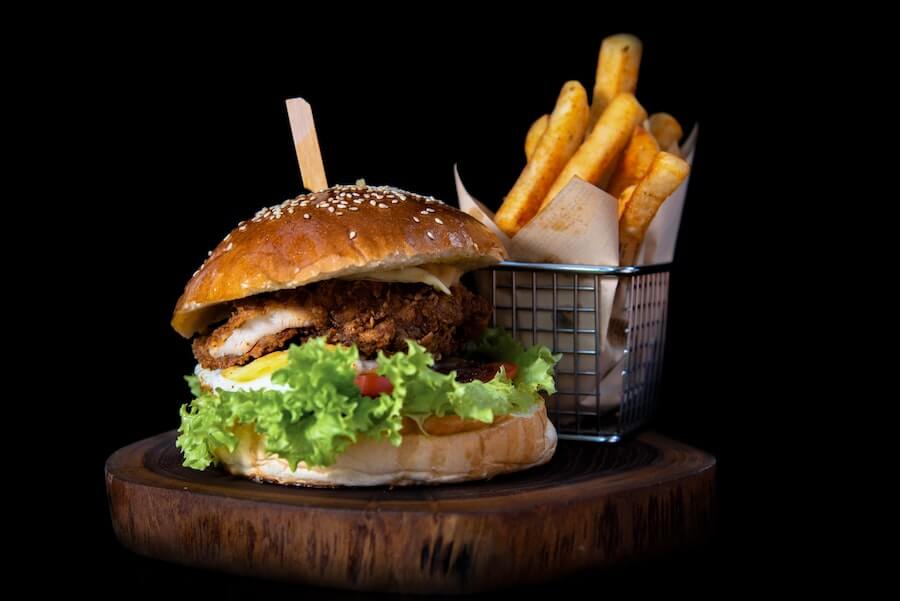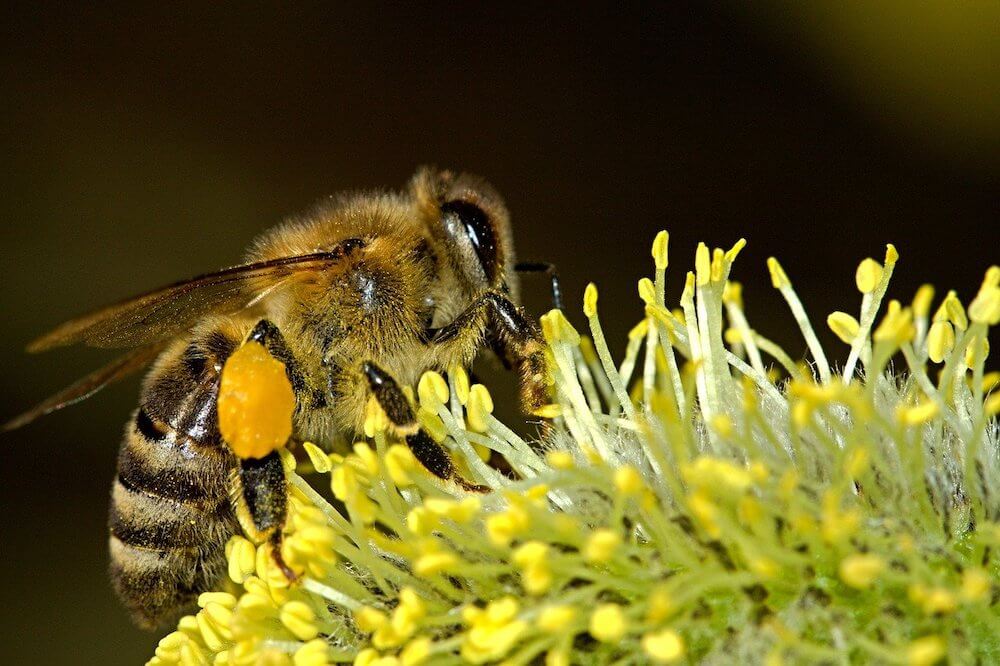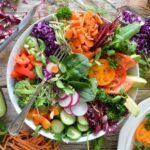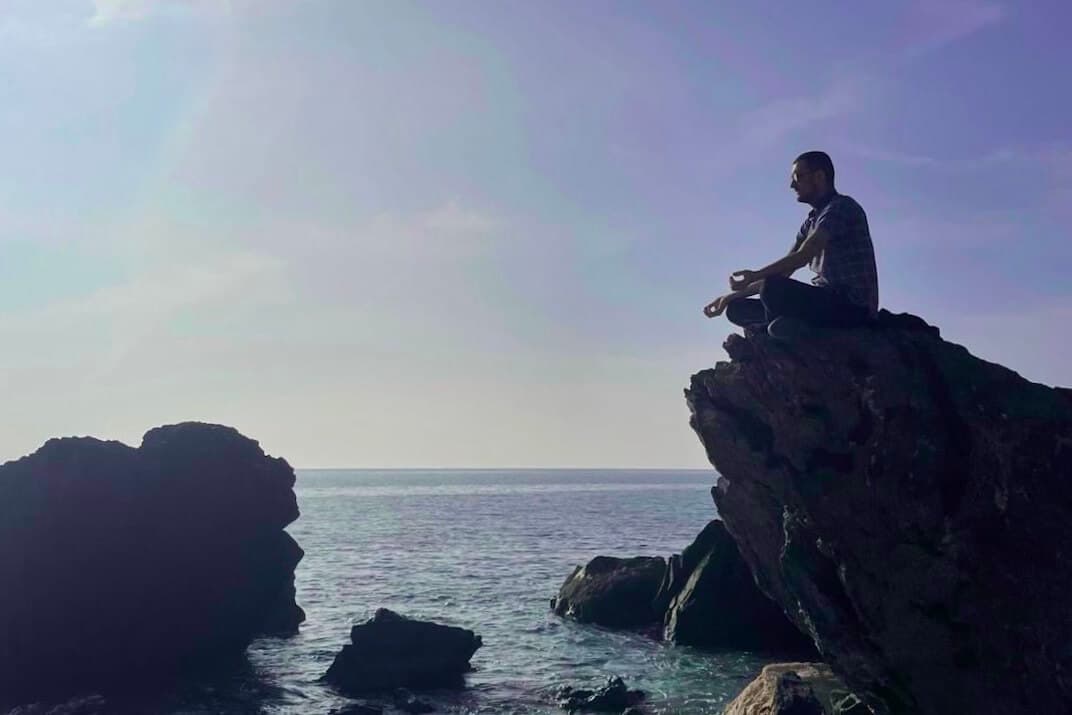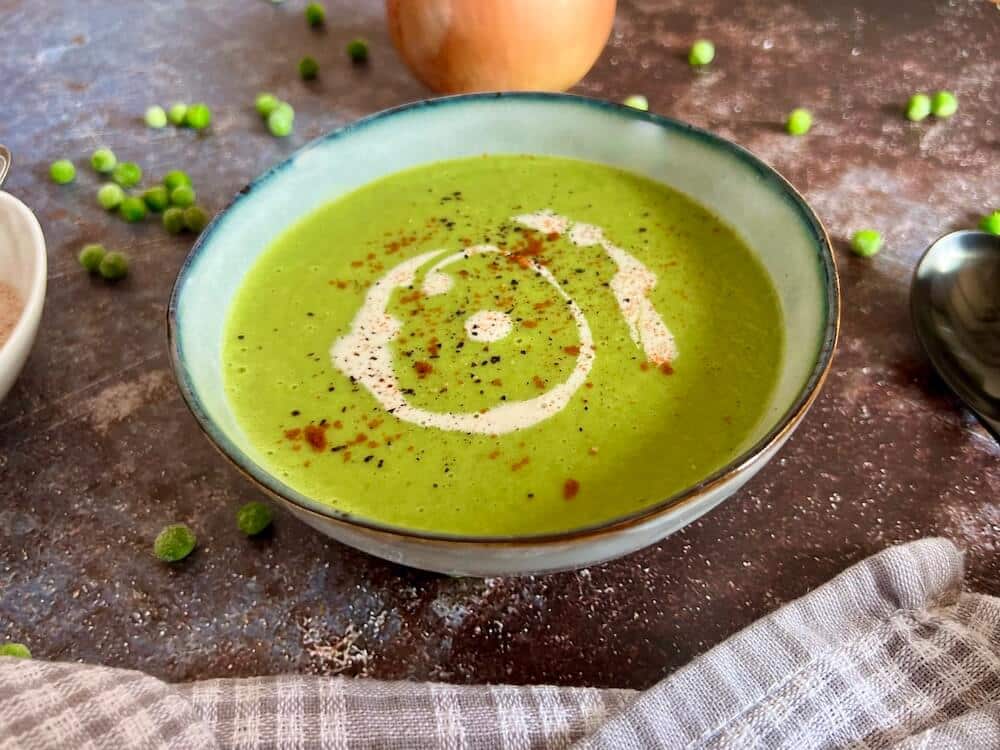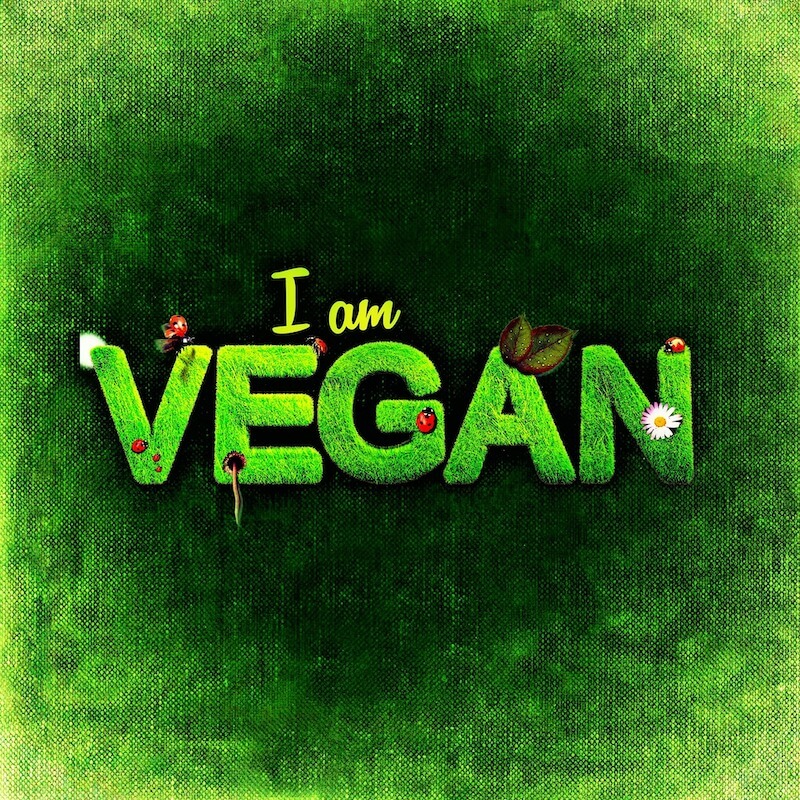Thinking of transitioning to a vegan lifestyle?
These 7 vegan lifestyle hacks can help make it easier, and after those we dive deeper into everything about going vegan, from WFPB to gluten free, to living happily ever after (ok just kidding).
So buckle up and let’s get started!
Table of Contents
7 Hacks for Transitioning to a Vegan Lifestyle
To transition over to a vegan lifestyle there are lots of things you can do to speed up the path and make it easier. Here are 7 lifestyle hacks.
- Educate your subconscious mind by feeding it with new information and visual evidence every day to support your new decision. Read books, join vegan forums, look things up on the internet and watch plenty of vegan movies.
- Be patient. Step by step. It takes time to change a habit. Generally they say you need 21 days to create a new habit and 90 days to consolidate it, but those figures are just numbers. To truly change a lifestyle habit such as eating or drinking, in my opinion takes a long string of continual ‘now‘ moments, lasting forever because now is always here. You will reach a day when it’s become second nature, but you shouldn’t measure the distance to that day. Instead just see the change as a permanent journey of nows, until one day you realise you’ve forgotten about it because it’s become second nature.
- Never beat yourself up about your choices to include some meat or other non-vegan happenings. The important thing is that you’re investigating the truth behind our conditioning and our behaviour, and you’re taking steps toward a more mindful life. So always feel good in that. You are making a difference. Be proud of your progress.
- Create new eating habits rather than just replacing your old meat style meals with the vegan equivalent. This will make it much easier (and cheaper and healthier) in the long run, though you may need to strike a balance!
- Eat vegan processed products only occasionally, in those moments when you really want to eat a burger for example. Allow yourself the luxury of eating a vegan burger on those occasions but try not to make that your daily way of eating.
- Keep your decision to yourself in the beginning, or just share with your close family or most trusted friends who will be supportive of your decision. You may find some people are unsympathetic to the idea of you embracing a vegan lifestyle. Change is often viewed with suspicion and the last thing you need when just starting out is people arguing with you or belittling your decision. If put under pressure, you can always say you fancy eating whatever it is you’re eating at that moment, without going into a long explanation.
- Once you’re established enough, you can tell the world! There’ll be plenty of time to share the information with people once you’ve become strong in your resolve. First concentrate on yourself!
What is a Vegan Lifestyle?
A vegan lifestyle aims to cause the least amount of harm as possible. That includes what we eat and which products we buy. It includes trying to make the best decisions we can for the good of the planet and all living beings who live on the planet.
According to the Vegan Society, this is the definition of a vegan lifestyle:
“Veganism is a philosophy and way of living which seeks to exclude—as far as is possible and practicable—all forms of exploitation of, and cruelty to, animals for food, clothing or any other purpose; and by extension, promotes the development and use of animal-free alternatives for the benefit of animals, humans and the environment. In dietary terms it denotes the practice of dispensing with all products derived wholly or partly from animals.”
The Vegan Society
One reason starting off on a vegan lifestyle is so exciting is that when you begin investigating those normal things which you used to take for granted, you start to unwrap layer after layer of new information.
And as the journey progresses, you find so many aspects of your life changing, until you hardly recognise your old belief structures anymore.
Suddenly you’ll see things through different eyes, and you’ll begin to experience new joy in life.
Many people say the best decision they ever made was going vegan, over and above everything else.
For me that’s definitely true.
A vegan lifestyle not only makes you healthier but also happier. And it’s a permanent journey, one which continues to evolve with each day that dawns.
If you want to switch over to a vegan lifestyle but the whole journey seems a bit daunting, don’t worry about it. Approach it with a positive curiosity to learn more and allow yourself to evolve into it with time.
Remember, you don’t have to suddenly be 100% vegan to make an impact. You can do what’s right for you, and go at your own pace.
Just by taking the steps to investigate a vegan way of living you’re already doing a great thing. And slowly, gradually, you can build up your plant based cooking repertoire until you’re a confident, fully fledged vegan – if that’s what you want.
Why Choose a Vegan Lifestyle?
To be honest, I can’t think of one reason to NOT be vegan but here are a few to get you started.
Reasons to be Vegan (in Brief)
- Say NO to supporting cruelty to living beings who are treated as though they were products by the meat, dairy, fish and leather industries.
- Develop spiritually by breaking free from ingesting the pain and suffering of others.
- Support the environment, planet and sustainability.
- Improve your health (as long as you research how to eat a balanced meal, even when cooking without recipes, so that you don’t skip essential nutrients from your diet).
- Prevent and reverse chronic disease, including heart disease, diabetes type 2, high tension, cholesterol and many more.
- Increase longevity.
- Experience joy as a bonus!
You’ll be pleasantly surprised by your emotions a little way down the road after becoming vegan as a new way of life unfolds before you.
In a nutshell, if your heart is in peace, you’ll feel so good about choosing a vegan lifestyle, you may even feel like you’ve come home to a place where you belong.
If you’ve been used to eating an unhealthy diet, then going whole food vegan can definitely be one of the most impactful actions you could take to reclaim your health.
And if you’re still unsure, take a look at these 5 compelling reasons to become vegan.
Vegan WFPB Lifestyle for the Animals
You’ll be able to rest easy that you’re no longer supporting the suffering of billions of animals who are living horrible lives across the planet.
And as you become more aware of our animal-practices across the industries, you become more liberated because you realise that you’re no longer part of the brutality and murder.
Mass-producing living beings as though they were products; grinding up of male chicks alive; abusing animals destined for the leather industry and the generalised lack of respect for life.
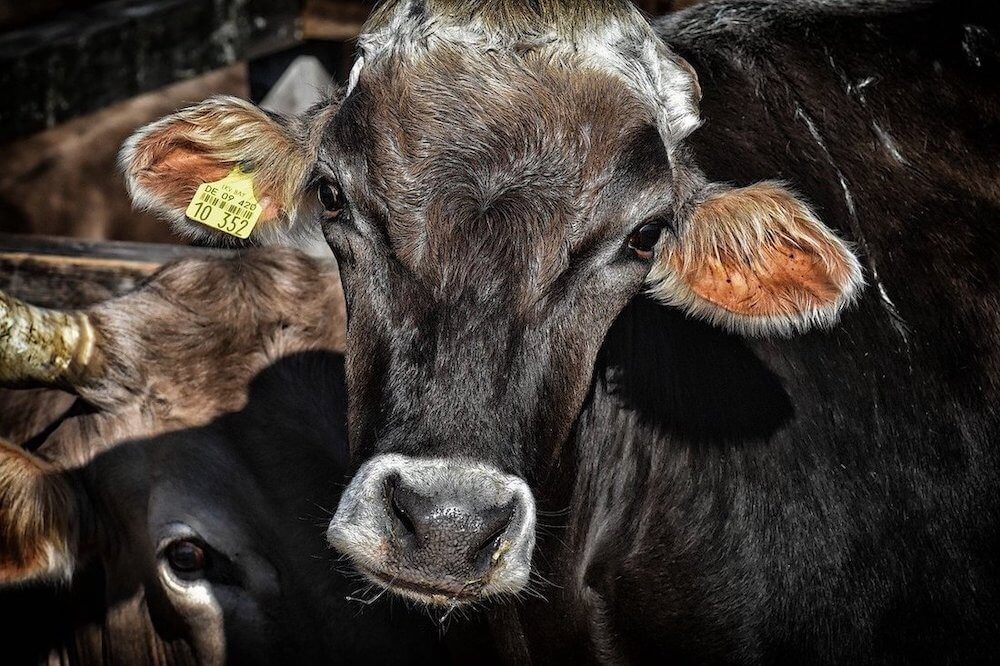
Vegan WFPB Lifestyle for the Planet
As if those weren’t already enough reasons to choose a vegan lifestyle, we (as humanity) also have to seriously consider what we’re doing to the planet on a global scale.
It’s estimated that up to 20% of the Amazon rainforest has been cleared and that 80% of the cause for that deforestation is for cattle ranching or growing feed for cattle.
And it isn’t only the Amazon rainforest that’s threatened but just that one example should be enough to make us all sit up in alarm and take action.
Across the world we’re dedicating huge land resources for the single market of producing enough meat to feed billions of humans who have increased from occasional meat eaters to daily meat eating for an ever increasing population.
The demand is simply too much for the resources, and the loss of rainforest and biodiversity is a tragedy.
We have to take action to change our attitude before it’s too late.
Please watch this short cartoon by Greenpeace and see if it doesn’t give you goose bumps!
A huge reduction in meat consumption will lesson the financial incentive and resulting land grab, as well as reducing the harmful emissions which are causing climatic changes.
Less meat consumption will also reduce the amount of land needed for the meat industry, the speed of rainforest destruction and allow for reintroduction of bio-diversity.
Additionally, a decrease in meat consumption is absolutely essential if we’re going to be able to reverse some of the damage we’ve done to our planet.
It feels good to know that you’re doing your bit to help, even though the more you learn the more painful it is to see what’s happening. You may look around you at so many people who are keeping the blindfold on and it might make you question the Human Being.
Read more about the damaging effects of the meat industry in going vegan for the environment.
For more on why choose a vegan lifestyle check out this guide to starting a vegan lifestyle.
Vegan Whole Foods Plant Based Lifestyle for Weight loss
If you want to lose weight or you’ve become accustomed to eating processed foods or saturated fatty foods (or other dietary choices), then adopting a whole foods plant based vegan diet is an amazing step to take.
You’ll be able to eat as much as you want of the healthy plant based meals while letting your body to reset itself to its ideal weight.
And the transition is gradual.
Healthy and slow.
No instant fixes.
I don’t recommend going vegan as a diet to lose weight; rather it’s beneficial to reset your body to healthy parameters – and as a by-product of that you will probably shed the excess kilos.
If you’re underweight, you can still adopt a whole foods vegan lifestyle to build back up to your ideal weight.
In this case, be sure to eat lots of whole food protein sources like lentils, beans, chickpeas, nuts, tofu and other protein sources.
The Most Important Tip for Success When Transitioning to a Vegan Lifestyle
There’s one fascinating tactic that’s greater than all the others, to apply to any new lifestyle transition, which will take out the struggle from your journey and that is to reprogram your subconscious mind first.
Reprogram Your Subconscious Mind First
When the subconscious mind hasn’t been reprogrammed, it works against you by sabotaging all your efforts and progress, because it’s still functioning on outdated information.
The outdated program within the subconscious mind sends conflicting feelings and thoughts as it believes it’s working in your best interests to get you back to where you started from.
Although you think you’d like to go vegan, your subconscious mind doesn’t know that unless you update it.
The subconscious conflicting beliefs like meat is delicious for example will make you feel like your missing out, instead of celebrating your gains at being free from something that you want no part of.
It’s these underlying beliefs that can create cravings or longings or struggles with your new habits.
When the conscious mind wants something new and changes our actions to align with this new belief, our subconscious assumes we’ve gone off track (the subconscious mind doesn’t use reason) and it does everything it can to get you back on course – the very course which you’re trying to get away from.
This is called cognitive dissonance, which refers to when our actions are in opposition to our subconscious beliefs.
On the other hand, as soon as the subconscious mind in on-board, there’s no more conflict, no more struggle, and the path ahead lies clear before us.
It becomes easy.
So, if you choose to change your habits without taking the time to investigate your deep subconscious beliefs, you are setting up a situation of cognitive dissonance and you’ll be working against yourself.
To create alignment between the conscious and subconscious mind, you need to be exposed to repetitive images, information and emotions to reinforce the truth behind the new information.
There are multiple factors that influence the subconscious mind, but in a case like this, where you’re feeding the subconscious with factual information, it isn’t too complicated a task.
Because you can show yourself daily, the reasons you want to be free from the meat, dairy and leather industry. Your emotions are reprogramming your subconscious.
The first step is to explore with curiosity and allow yourself to be investigative. By investigating facts and figures, you’re continually feeding the subconscious with relevant information, and as you respond emotionally to what you learn, the subconscious begins to re-program.
Read up as much as you can, watch movies, join forums where you can hear other people’s stories and reinforce all the positives of going vegan.
Use manifesting techniques to visualise and manifest the changes you want to see in your life.
Your goal isn’t to convince the subconscious of anything – you aren’t looking for a certain result, you’re just updating out-of-date information.
Aim to trickle feed your subconscious mind with all the back-up it needs for it to shift from, ‘I’m being deprived of what’s good for me,’ attitude to the new: ‘I love my plant based life and this is what’s best for me,’ attitude.
When the conscious and subconscious mind are aligned the path ahead becomes extremely simple.
How to Maintain a Vegan Lifestyle
Maintaining a vegan lifestyle means finding a balance where you eat a wonderful healthy diet which you love and also finding a way through the maze of commercial propaganda to discover vegan companies which produce ethical and sustainable products.
And to date, that is no easy feat.
But things are improving all the time and there’s no reason why, if we all start to support ethical and sustainable, more and more companies won’t start to spring up using more ethical core values.
The difficulty lies in finding them and in some cases, affording them.
Maintaining Health on a Vegan Diet
A vegan lifestyle can be the most healthful experience of your life, but it can also raise a few health issues if you don’t do the preparation.
I wrote about learning how to make balanced meals without following a recipe if you’re just starting out or used to depending on recipes when you cook.
Eating vegan is really healthy, but you need to make sure it is and not make some basic mistakes about nutrition. Again, this shouldn’t be daunting.
If you’re in any doubt, you can always reach out for help from people like me, who can give you support in whatever way you need it.
It needn’t be difficult.
To over-simplify the topic of maintaining health on a vegan diet, here are some of the pointers I would recommend. I am not a qualified nutritionalist and these are just my opinions.
How to Eat a Healthy Balanced Vegan Diet
- Include a wide range of vegetables, pulses, beans, nuts, seeds and fruit in your diet.
- Create meals from primary ingredients (i.e. as much as possible, avoid processed foods).
- Use only healthy oils in the kitchen, or better still, cut out oil completely. Coconut oil has also been talked about as a healthy oil but there’s contradictory information out there, as coconut oil is actually high in saturated fat and can raise both good and bad cholesterol levels. Personally, when I’m not cooking oil free, my go-to oil to use is extra virgin olive oil.
- When you cook a meal, include some the following foods to keep the protein levels up: lentils, beans, chickpeas, nuts, hemp seeds, chia seeds, quinoa, tofu & tempeh, edamame.
- Enjoy your food! Discover new tastes and be curious. Keep it simple.
- Keep processed foods to a minimum.
- Take a vitamin B12 supplement daily.
- Take a vegan omega 3 supplement and include ground flax seed in your diet.
- Get a good quality vitamin B12 to take daily.
- Take a vegan multivitamin or get advice from a vegan nutritional advisor about other vitamins: magnesium, vitamin B complex, vitamin D, or other.
How to Avoid an Unhealthy Vegan Lifestyle
Sure, there are people who have turned vegan only to find that they’ve encountered health problems further down the line.
The most unhealthy way to be vegan is to depend largely on low quality processed vegan products and to consume lots of sugar and fried foods. If you buy vegan burgers, vegan pizza, vegan sausages, vegan pies, vegan lasagne, vegan ice-cream and vegan cake, you’re not going to be on a healthy vegan diet.
Please note that I’m not trying to trash all vegan foods out there: there are some vegan processed foods which have healthy ingredients, but you need to read the labels and get savvy on what’s healthy and what isn’t.
And you can’t get unhealthy ingredients if there’s no ingredient list, so eating whole foods automatically becomes the number one choice with carefully chosen processed foods for special treats.
If you rely on homemade, fully balanced buddha bowls, incredibly tasty king salads, quinoa salads, broad bean recipe from Spain (Cazuela de habas), a lentil stew from Spain, or any other of a million varieties of easy balanced meals, then you’re on a healthful path.
And you absolutely must embrace cooking without recipes!
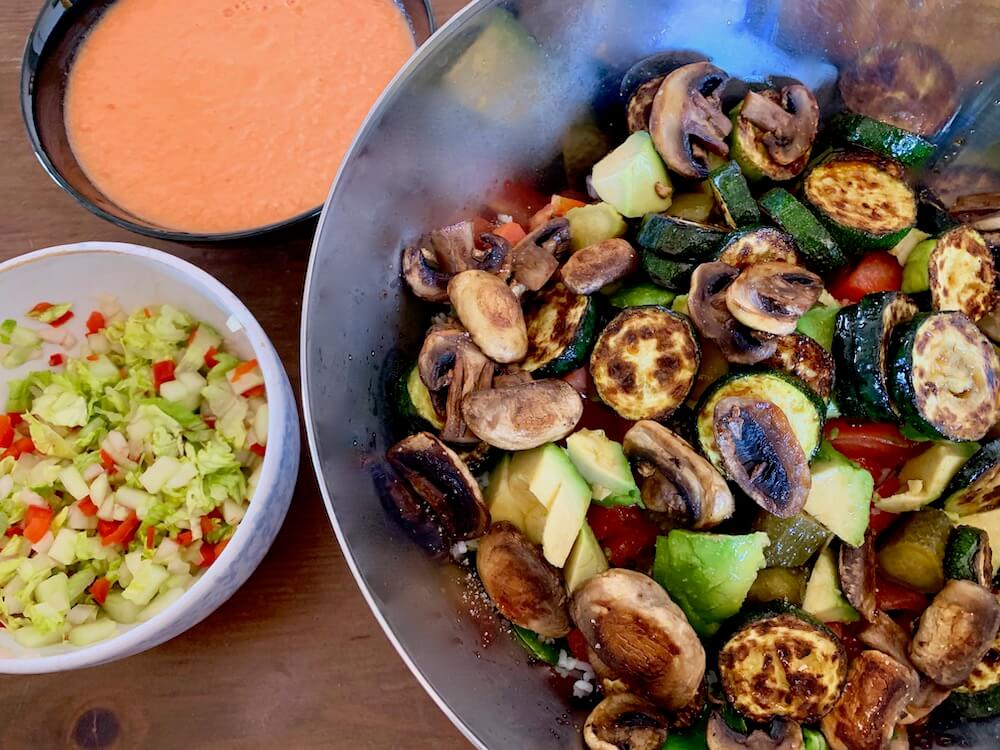
Possibly the best way to define a healthy vegan diet would be to call it a whole foods diet. Eat whole foods, eat a large variety and take supplements to boost your health if necessary.
Non-Food Vegan Products for a Vegan Lifestyle
It can be really difficult when you become vegan because suddenly you realise just how many things you own that aren’t vegan.
How to switch to vegan? Well, some people get rid of their old leather shoes and replace them immediately with vegan equivalents.
That’s entirely up to you.
I personally keep using my leather shoes until they wear out and then I throw them away and buy vegan. That’s because I don’t believe in waste.
If I had a pair of shoes for example that could be used by someone else, then I would give them away, as I did with my leather boots because they would have lasted me a lifetime and I didn’t want them in my house for the rest of my life!
I still have a pair of sandals that are leather. They’re about 7 years old, from before I made the transition and are not in a state to be given away, so I continue to use them.
But apart from shoes, it isn’t easy to replace everything, and the best you can ask of yourself is to do what you can.
Some of the more obvious things to consider and source as a vegan alternative are: shampoo, soap, face cream & makeup.
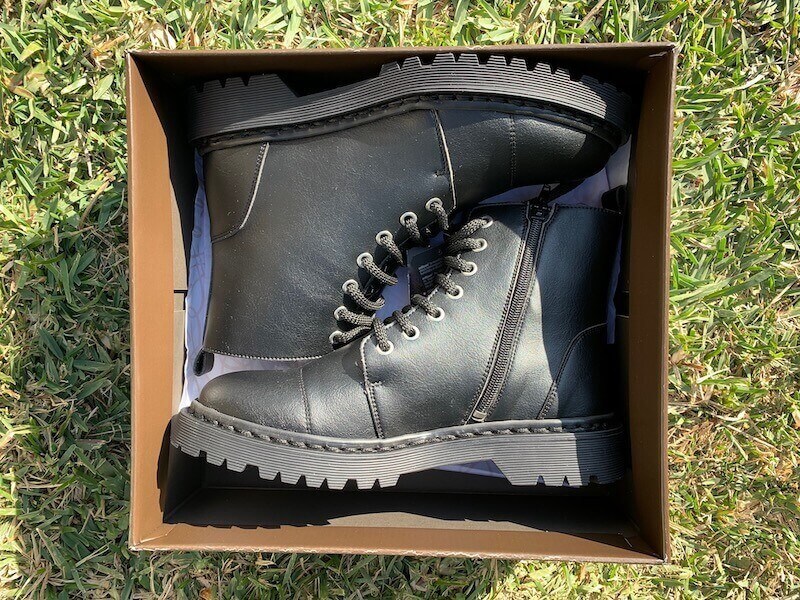
For washing liquid for clothes, I’ve now changed to using these soap nuts from Amazon, which are entirely natural, vegan and chemical free. For an additional boost to white washes you can add bicarbonate of soda to the wash.
Bottom line on this is that we have to do what we can at the moment in relation to the times we’re living in. In future times, I hope it will be easy to eliminate everything non-vegan from our houses, but living in today’s society makes it difficult to explore and discover the difference.
Is a Vegan Lifestyle Expensive?
Anything that is a minority tends to be more expensive until it gains enough traction to appeal to a wider public and create more competition.
At the moment, there are many vegan products which are still expensive, but you can still manage a vegan lifestyle on a budget.
You don’t have to buy the expensive products in most cases.
Living off whole foods, in Spain where I live, is one of the cheapest ways to live. Beans, lentils, vegetables, fruit, tofu . . . they’re all super cheap products.
The price only goes up when you buy nuts, tahini, tempeh etc, but as these foods a a ‘top up’ to the cheap basic staple diet, the overall price is still cheaper than the non vegan standard diet.
Unnecessary Expensive Vegan Foods
A vegan lifestyle has the rap of being expensive, and this can be true if you buy products that are produced specifically for the vegan market. Some examples of expensive foods at the time of writing are: vegan burgers, vegan sausages, vegan cheese, vegan pizza etc.
But if you’re choosing to limit those products for a healthier approach to your diet, then there’s no reason your lifestyle should be more expensive than before.
If anything it should be cheaper.
Necessary Expensive Vegan Foods
You’ll need to adjust your mind-chip regarding the cost of necessary foods.
For example, nuts are expensive, but nuts are an important part of a healthy vegan diet (unless you have an allergy), so you’re better off buying them in without question.
I remember being a bit shocked by how expensive nuts were. But then when you compare it to the price of cheese and the price of meat or fish, you realise that actually it’s a small price to pay for a large saving.
Other than nuts, most of the ingredients you’ll be buying are cheap. Read on to see how to to vegan on a budget.
Vegan Diet on a Budget
Actually a vegan diet is probably the easiest diet to do on a budget. You can buy in some beans, lentils, wholegrain rice and even quinoa for very cheap prices compared to how far these foods go.
Make up a delicious pot of chilli sin carne, create a yummy curry or cook up a nasi goreng for example, and eat the meal for two days.
By balancing your fruit and veggies with a staple plant protein in this way, you can eat vegan on a budget and live a very healthy life for low cost!
In fact, when you walk into a supermarket and you’re a gluten free, whole food vegan, you will find yourself looking at all those thousands of products that you can just walk straight past, and the absence of those products in your shopping trolley will reduce your shopping costs.
My Vegan Shopping List on a Budget
I have various sources for my monthly shopping, so it can be divided into various groups. You can also download a shopping list from the sidebar of this site.
Weekly shopping:
- Fruit & vegetables: this depends on where you live. Fruit and vegetables aren’t expensive where I live as long as you keep an eye on the price and buy what’s in season or on offer.
- Beans: red beans, white beans, giant beans, black beans. I buy them in a jar, and they aren’t expensive, but if you buy them dry they become one of the cheapest foods you could buy.
- Chickpeas: same as for beans, buy them dried and they cost pennies.
- Lentils: I only buy dried lentils – I don’t like the ones that are pre-cooked.
- Black rice, brown rice, basmati rice & quinoa.
- Tofu: very cheap from Lidle.
- Nuts: almonds, cashews, walnuts
- tomato purée
And that’s it. That’s my weekly shopping list. On top of that, there are things that I have to buy less often and source online. They are:
- Tahini
- Spices
- gluten free noodles
- flax seed, hemp seed, chia seed, sesame seed
- Tamari and ketjap manis
- Nutritional yeast
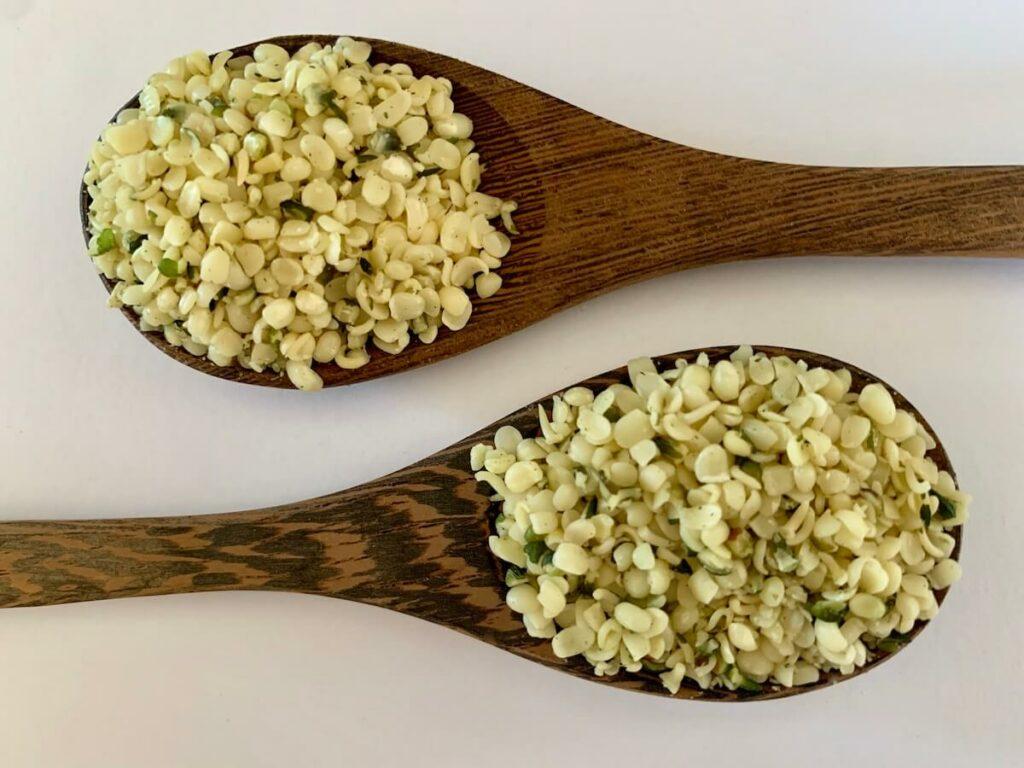
There might be other things that I buy occasionally, but with these items listed above, that’s basically my whole shopping list.
And given that the only expensive things (nuts, tahini . . . ) last a very long time, I think it’s clear that this is a much cheaper way to live than your standard shopping list, which would include biscuits, pizza, cake, desserts, cheese, meat, etc.
When you start experimenting, you can make a delicious meal as long as you have some of these ingredients in your fridge.
Vegan Lifestyle for Health
If you’re suffering from any health issues, I believe that you stand a chance of halting or reversing them by altering your diet. It’s become more recognised in recent years that the biome, or your gut flora, affects everything from moods, to health to energy and everything in between.
It’s no longer accurate to see a symptom as a separate entity from the whole and increasingly tests have shown that your diet plays a direct role in all your mechanisms.
Food is your best medicine.
The topic of food as medicine is enormous and wouldn’t even fit inside one standard book, let alone a post of this length. The reason for that is that different foods support different systems and every symptom will have a food which can support it or aggravate it.
Without becoming a scientist on food as medicine, you can claim your lifestyle benefits by becoming vegan and continually improving your diet.
It’s a bit like being a detective, constantly on the lookout for signals from your body and paying attention to what you’re eating, until it becomes second nature.
- Dairy & meat are inflammatory foods, favouring and supporting inflammation in the body.
- Refined sugar can be a causing factor in type 2 diabetes, obesity, empty calories, and a spike in blood sugar levels, among other negative health issues. There is no refined sugar in whole, plant based foods.
- Saturated fats are bad for heart health and the cardiovascular system: there are almost no saturated fats in whole, plant based foods.
- A whole food vegan diet is rich in antioxidants, which are super powerful and can fight off free radicals which cause disease and ageing.
- Plants are full of phytonutrients to further boost health.
Your body naturally wants to be healthy and has incredible power to reclaim health and rebuild itself but we need to feed it with non inflammatory foods to support it’s journey and that’s precisely what a whole food vegan diet does.
Supplements for a Vegan Lifestyle
Some supplements are standard ones for a vegan diet. These include a vitamin B12 supplement, a vitamin D complex if you don’t go out in the sunlight and a vegan omega 3 supplement or the inclusion of flax seed and hemp seed in your diet.
A good multi vitamin is recommended for anyone, vegan or not, so you may like to start there and magnesium is another common deficiency which may be recommended for you by your nutritional advisor.
It’s always good to go over your diet with a nutritional therapist to isolate and identify any possible improvements as well as get some suggestions for further supplementation if necessary.
Make sure you speak to a nutritional therapist who you trust and who understands and is sympathetic to a vegan diet. It’s no good whatsoever to visit a mainstream nutritionalist who isn’t vegan friendly as you will be wasting your money.
Once you have the recommendations, take the supplements and see how you get on.
Vegan Lifestyle for Weight loss
Many people lose weight when they first transition to a vegan diet and this is because their body is adjusting to the new way of eating and losing excess fat. This doesn’t mean that you’ll automatically lose weight if you aren’t overweight; it’s perfectly normal to maintain an ideal body weight on a vegan diet.
If, however, you want to shed some kilos, going vegan, or more specifically adopting a whole foods plant based diet, can be your best friend in helping you in your goal.
When you’ve mastered the transition to whole foods, there’s no need to count calories because what you’re eating is nutritional, packed with health boosting properties and empty of saturated fats.
If you adhere to the whole foods plant based lifestyle strictly, then you would also cut out oil in your cooking as oil is a processed food with a high calorie count and low nutritional value. Whether you choose to adopt an oil free lifestyle is a personal choice, but to be clear, nobody’s saying that extra virgin olive oil is bad for you, just that it is processed and unnecessarily high in empty calories.
So, if you’re choosing a vegan lifestyle, among other reasons, to lose weight, you might like to also cut out or reduce the amount of oil you include in your diet. I have recently adopted this way of cooking and eating as part of my 5 steps to beat menopause naturally and rid myself of increased belly fat.
What is a Whole Food Plant Based Diet?
The term whole food plant based diet can be interpreted in various ways, but it actually refers to a specific lifestyle choice which includes predominantly plant based foods and is often motivated for health reasons.
It’s important to point out that people following a WFPB diet aren’t necessarily vegan, and commercial products which are labelled as plant based, may contain milk or other non-vegan ingredients.
Actually the whole food plant based (WFPB) diet is a movement founded by a group of doctors who discovered serious chronic disease such as heart disease and diabetes type 2 can be reversed by addressing the diet and lifestyle of the patients.
The WFPB lifestyle is backed up by scientific evidence as well as scientific studies on the topic, showing that many chronic diseases are the result of poor lifestyle choices.
The WFPB diet recommends eating only whole foods or limiting processed foods as much as possible, and that includes eliminating processed oil from the diet.
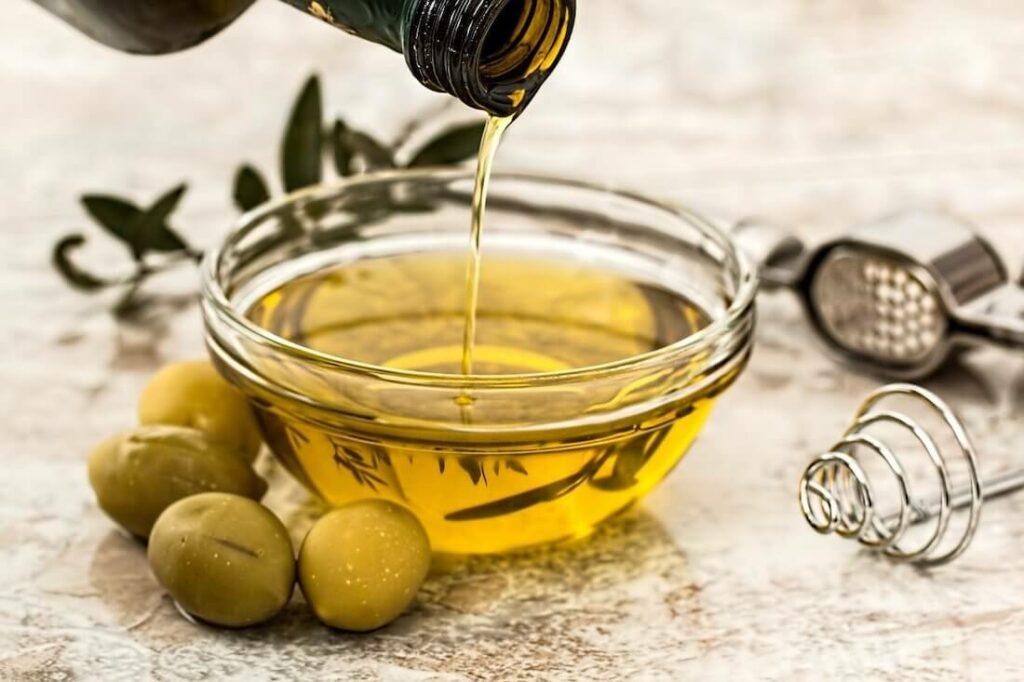
When I first heard about eliminating oil I was resistant to the idea because I’ve always held that olive oil is really healthy and well the fact that it’s delicious is undeniable! But when I realised what the WFPB diet is actually saying, then I was able to see the sense in it.
It’s not that olive oil is unhealthy, it’s just that if you take 100 calories of olive oil on one side and 100 calories of a whole food such as broccoli on the other side, the oil will do nothing to fill you up, whereas with the broccoli you’re not only getting more quantity of food, but also the fibre and phytonutrients that go with it.
This takes the edge off the idea and makes it logical to me. It also means that if you cut out oil and one day you fancy it, you can go right ahead. It isn’t killing you. It just isn’t as nutritious as all the other options on your plate.
Read this easy guide to whole foods plant based diet.
Should You Try a Gluten Free Vegan Lifestyle?
I lead a gluten free vegan lifestyle because I’m intolerant and I wouldn’t have it any other way. If you aren’t intolerant to gluten, I can understand that you may wonder why you would cut gluten out of your life.
But gluten has caused so many problems with gut issues in a significant number of the population that it stands to reason that we should question its place in our diet. We have, over thousands of years, all but eradicated biodiversity in the fields, growing crop after crop after crop of the same grain.
And it’s a scientific fact that gluten is extremely difficult for the human body to digest even for people who aren’t gluten intolerant.
So although you may not have symptoms yet, gluten is not your best friend by any stretch of the imagination, and could actually be damaging your gut.
I’ve written more extensively about a gluten free lifestyle in this essential guide to going gluten free.
My Gluten free Vegan Lifestyle
In my case, my intolerance eventually became so strong that I couldn’t even continue with my day if I’d eaten a touch of gluten. I would be violently sick with terrible stomach cramps, diarrhoea and even vomiting.
I would lie on my bed or on the bathroom floor groaning from pain, with hot and cold chills and a terrible feeling over my whole body. The only description that fits would be that I felt as though I’d been poisoned, or so I imagine poisoning to feel!
The path to gluten free wasn’t without glitches for me. I read everything I could find on the internet and began eradicating gluten-containing foods. But there were so many contaminants which I wasn’t familiar with that it was sometime a game of Russian Roulette.
For example, I remember thinking that Indian food should be fine for me. And I asked in the restaurant each time before eating anything. Yet 3 consecutive times after eating at an Indian restaurant I became very sick and lost the subsequent evening and following day. The most recent of these events was on New Year’s Eve 2017 and I’d already been gluten free for years! Just goes to show that you can always get caught out.
The reason for the problem is often because things like spices can contain gluten as a filler, yet the staff at the restaurant have no reason to know that. When asked if something contains gluten, they’re thinking of more obvious sources like wheat flour, so they answer ‘no’.
In fact, spices are a common source of gluten contamination.
These kinds of things go with the territory and you will get used to it. If you’re not intolerant, I would still recommend going gluten free, though you wouldn’t need to worry about contaminants like the spice filler.
Instead, stop buying wheat flour, pizza, bread etc and replace them with gram flour (chickpea flour). It has a higher nutritional content and zero gluten.
I can honestly say that I love my gluten free vegan lifestyle and the only two foods that I miss are Marmite, because there’s nothing else like it, and pasta, because I don’t love gluten free pasta the way I used to love pasta.
But that’s a small price to pay for my health and freedom from gut pain!
What is a Raw Vegan Lifestyle and Why Choose it?
A raw vegan lifestyle promotes eating foods that have not been heated above 40-48ºc (104-118F). Put simply, the theory behind adopting a raw vegan diet is that foods lose nutritional value when cooked and have all the nutrients necessary for optimum health when eaten in their raw state.
There are many people who live a raw vegan lifestyle who will profess the benefits of the lifestyle and who swear by it as a health promoting diet.
There is also equally strong opposition. Along with the mainstream criticisms of vegan diet in general, there come additional criticisms that raw food can be more difficult to digest and put more strain on the digestive system. And that some vegetables actually become more digestible after cooking.
Instead of cooking, a raw diet includes other ways of preparing food, such as dehydrating, juicing, blending, sprouting and fermenting.
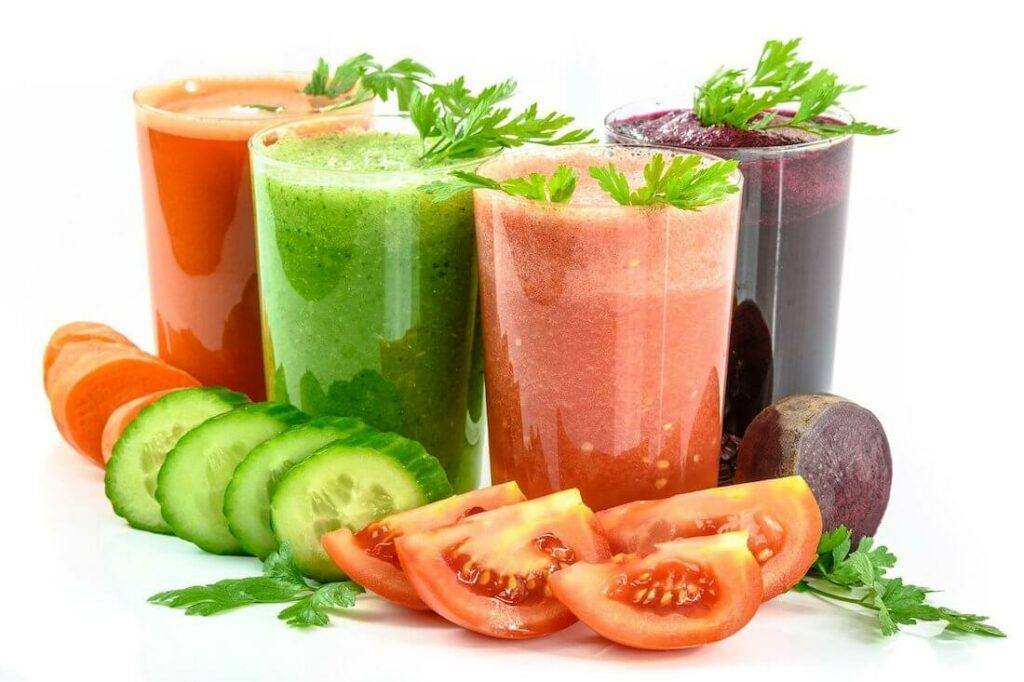
I find the concept of a raw vegan diet intriguing, but I haven’t tried it yet and I don’t know if or when I will.
Must-See Vegan Lifestyle Documentaries
There are many excellent vegan movies to watch; here are just a few recommendations in no particular order and by no means extensive. There are plenty more to be found if you run a Google search. You may also like to watch one of the most famous speeches on veganism, given by Gary Yourofsky.
- Cowspiracy – shows the effect of the meat industry on the planet and is not a gory film but is nonetheless powerful in its message. You can read more about the movie in this movie review of Cowspiracy.
- The Gamechangers – this movie is about athletes who opt for a plant based diet and thrive. The movie has been heavily criticised for not being accurate, but is still worth watching in my opinion.
- What the Health – from the makers of Cowspiracy come this movie which looks at the food companies and pharmaceutical companies and the negative effects of eating meat.
- Forks over Knives – looks into the world of the doctors who cure patients suffering from degenerative diseases including heart disease by changing their diet to plant based.
- Earthlings – very graphic. One of the most influential vegan movies, made with undercover cameras and showing the abuse of animals across many different industries, including the meat and dairy industry.
- Speciesism – questions why humans would be above other species and whether we should be eating them.
- H.O.P.E. shows how a traditional western diet high in meat and dairy is not only bad for health but also for the planet.
Pros & Cons of a Vegan Lifestyle
I don’t believe there are any cons when it comes to a choice that isn’t a choice. There is no option to eat a dead body for me, so therefore there are no cons. If eating meat is still an option for you, then the cons given below might be considered as cons.
Pros of a (Whole Foods Plant Based) Vegan Lifestyle
- No contribution to torturing and massacring billions of animals.
- Contributing to healing the planet.
- Improved health.
- Reversal of chronic disease
- Starts a wonderful learning journey that promotes sharing more love .
- Peaceful lifestyle.
- Improved or heightened taste from food.
- May be cheaper.
- Can help with weight loss.
Cons of a Vegan Lifestyle
- Friends and family may not understand or support your decision.
- It can be difficult to find something to eat at a restaurant, depending on where you live in the world.
- You may need to learn new ways to think about food and new ways to cook.
Vegan Lifestyle Tips
These are a few tips I’ve put together after being vegan for several years. These tips are based purely on my opinion.
- Eat whole foods.
- Try to source vegan products for the household too but don’t beat yourself up when you get it wrong.
- Accept that other people have their own paths to lead. They aren’t going to suddenly be interested/curious/supportive of your decision. Most likely they will be dismissive or critical of it. Learn not to take any notice of what other people think of your eating habits.
- By the same token, while we all would love everyone to realise the horrors of the meat industry and become vegan, the simple fact is that by calling them out you won’t help the vegan movement. The only people you can help to change are the people who are looking to change. Remember that when you feel like ridiculing the person who says they love animals while eating a steak. They can’t see life differently just now. The best you can do is to sow a seed so that they think about it.
- If you feel too critical of people who don’t share your vegan journey, remember that you yourself have contributed to the suffering of animals and destruction of the planet, and I can safely say that about you because we all have. In some way or another we’re still making bad choices which we won’t realise until some point in the future. So go easy on others for their choices in life. That doesn’t mean don’t try to share your views, just try to be understanding that we’re all at different stages of the journey.

